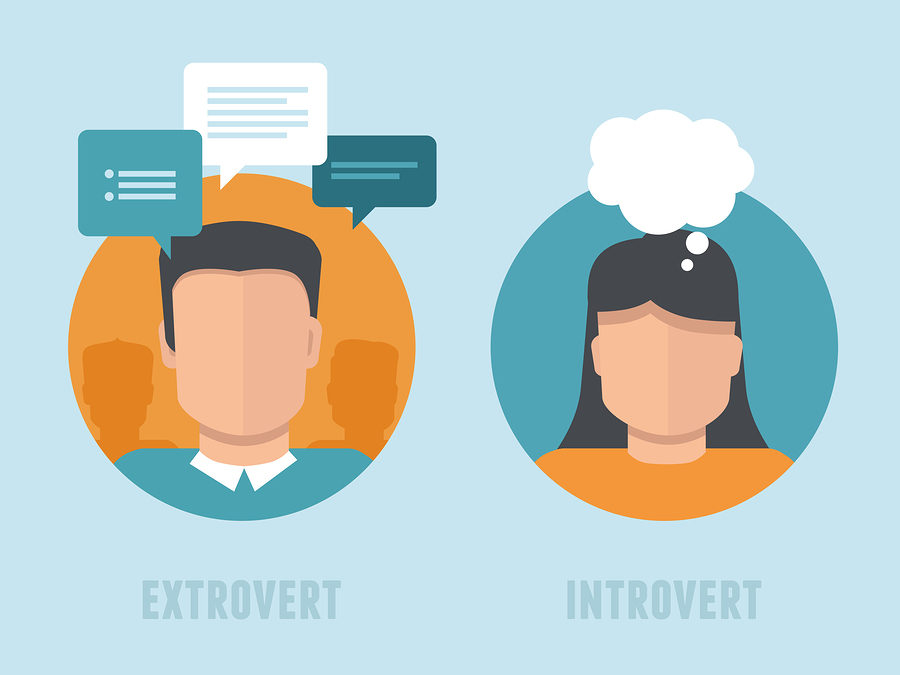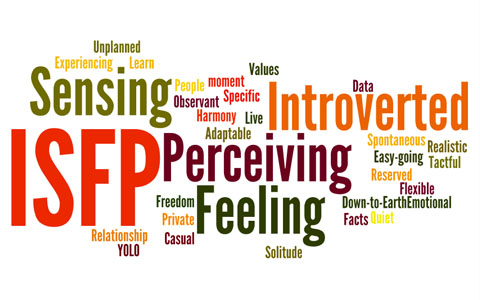08 Nov

Stay Connected – 








Carl Jung was the Swiss psychiatrist who coined the terms “extrovert” and “introvert”. He is also responsible for formulating theories about the collective unconscious, archetypes, and dreams. Whether you’re an extrovert or introvert, accepting, owning and enjoying your dominant personality traits can lead to a happier, more fulfilled life! A study has found that introverts are actually wired differently than extroverts. Introverts have more blood flow in the frontal lobes of their brain and the anterior or frontal thalamus, which are both areas that deal with internal processing, they are great planners and problem solvers. Extroverts hold more blood flow in the anterior cingulated gyrus, temporal lobes, and posterior thalamus, which are both involved in sensory and emotional experience. This particular study and other research have indicated that introversion-extraversion is actually related to individual differences in brain function.

Introvert Personality Traits
Introverts can easily become self-aware around others, which can cause them to over plan and over think a simple outing, which would not even faze an extrovert. An introverted person can have a hard time figuring out the right thing to say while in conversation with others, cracking a joke, or being candid. They can be social people, but still tend to reveal less about themselves than an extrovert would. Most introverts prefer taking some time to think before responding to a situation, because they would rather develop their ideas by reflecting privately. Introverts have the ability to focus their attention more readily and for longer periods of time than extroverts. Some introverts may feel awkward or weird around a group of extroverts, but may be attracted to an extroverted person. While many introverts seem to come across as shy and quiet individuals, not all of them are, shy people can be an introvert or extrovert. Introverts prefer keeping things low key and their activities are usually kept within a small group of people, rather than large social evnets. The social outcast has little to no choice in the matter of his or her solitude. Below are some additional characteristics of introverted personalities:
- Highly self-aware
- analytical
- Thoughtful
- More sociable around people they trust
- High attention to detail
Ideal Careers for Introverts
If you’re an introvert at your job, chances are that people have called you shy, reserved or quiet, but introverts are being recognized for their ability to contribute in what author Susan Cain calls “a loud and proud society.” Introverts feel most comfortable working alone or in a small group so they can focus on solving problems without any distractions. A few ideal career choices for introverts include:
- Software Engineer
- Market Research Analyst
- Translator
- Human Resource Specialist
- Accountant
Extrovert Personality Traits
According to renowned Swiss psychiatrist Carl Jung, extroversion is defined as the ability of turning the interests and energies of the mind toward events, people and things in the world about us. In psychology, an extrovert is a person concerned more about the practical realities of life, rather than to one’s inner thoughts and feelings – simply put, an individual who is keen on what is happening around him. If you have ever met or know someone who loves to socialize, and has an outgoing personality, he/she is more than likely an extrovert. Unlike introverts, these enthusiastic individuals very rarely require much time to get used to people within a group. People who are known to have extroverted personalities make the most of the opportunities that come their way, without overly worrying about “what if.” Extroverts are usually the ones who put candy on their desks at the workplace in order to encourage interactions with others. They tend to be energized around other people, and are more prone to become bored easily when alone. Some additional personality traits of an extrovert can be:
- Assertive
- Cheerful
- Talkative
- Attention seeking
Ideal Careers for Extroverts
Most extroverts are eager to land a job that doesn’t actually feel like one. Extroverts thrive in job positions where they are able to mingle freely with co-workers when they please. They prefer job positions that entail different daily duties rather than a set routine. An extrovert would not do well as a date entry clerk or a sedentary position all day long. Here are some ideal professions for an extroverted person:
- Public Relations Manager
- Elementary School Teacher
- Physical Therapist
- Sales Professional
Are You an Introvert or Extrovert?
After reading about both personality types, if you are still unsure of which characteristics suit your personality best, taking the MBTI® assessment is a great way to find out more about your particular personality traits. Once you become aware of your specific personality type, you will be able to better prevent some of the common problems which may occur when trying to fit a square into a circle. It is also helpful in further understanding yourself and what might best suit your personality type in your pursuit of happiness.







